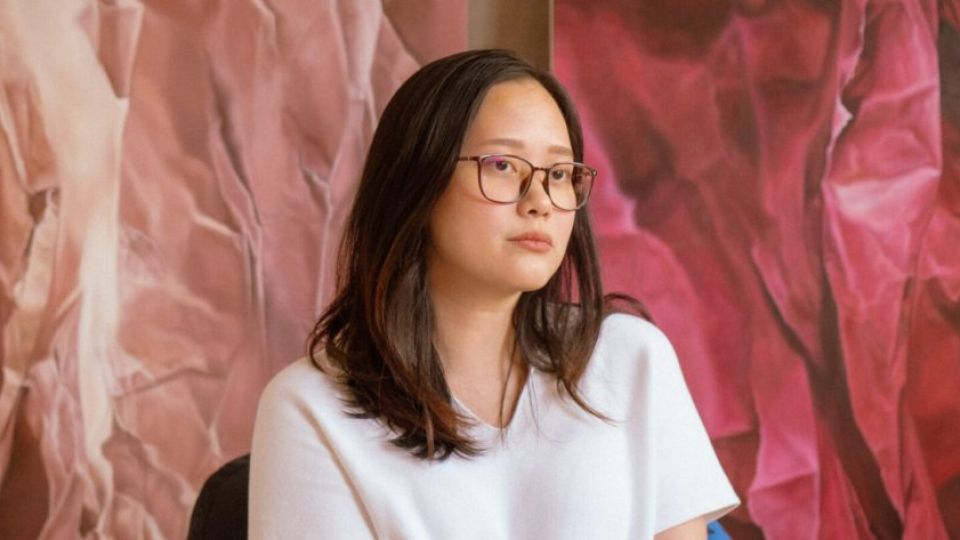November 21, 2024
MANILA – In James Joyce’s modernist 1922 masterpiece “Ulysses,” the phrase “the sex” serves as a euphemism for the most intimate part of the female anatomy. In her latest exhibition in Sydney, Australia, Filipina artist Ayka Go delves into this intimacy with extreme vulnerability and profound reflection.
A sought-after artist in her 30s, Go has been known for her light, playful works often centered on depictions of collaged or folded paper. However, her latest series did a bold 180. Moving away from the childlike sweetness of her earlier pieces, Go now presents poignant portraits of paper collages symbolizing vaginas stitched together as an expression of her recent discovery that she is post-menopausal.
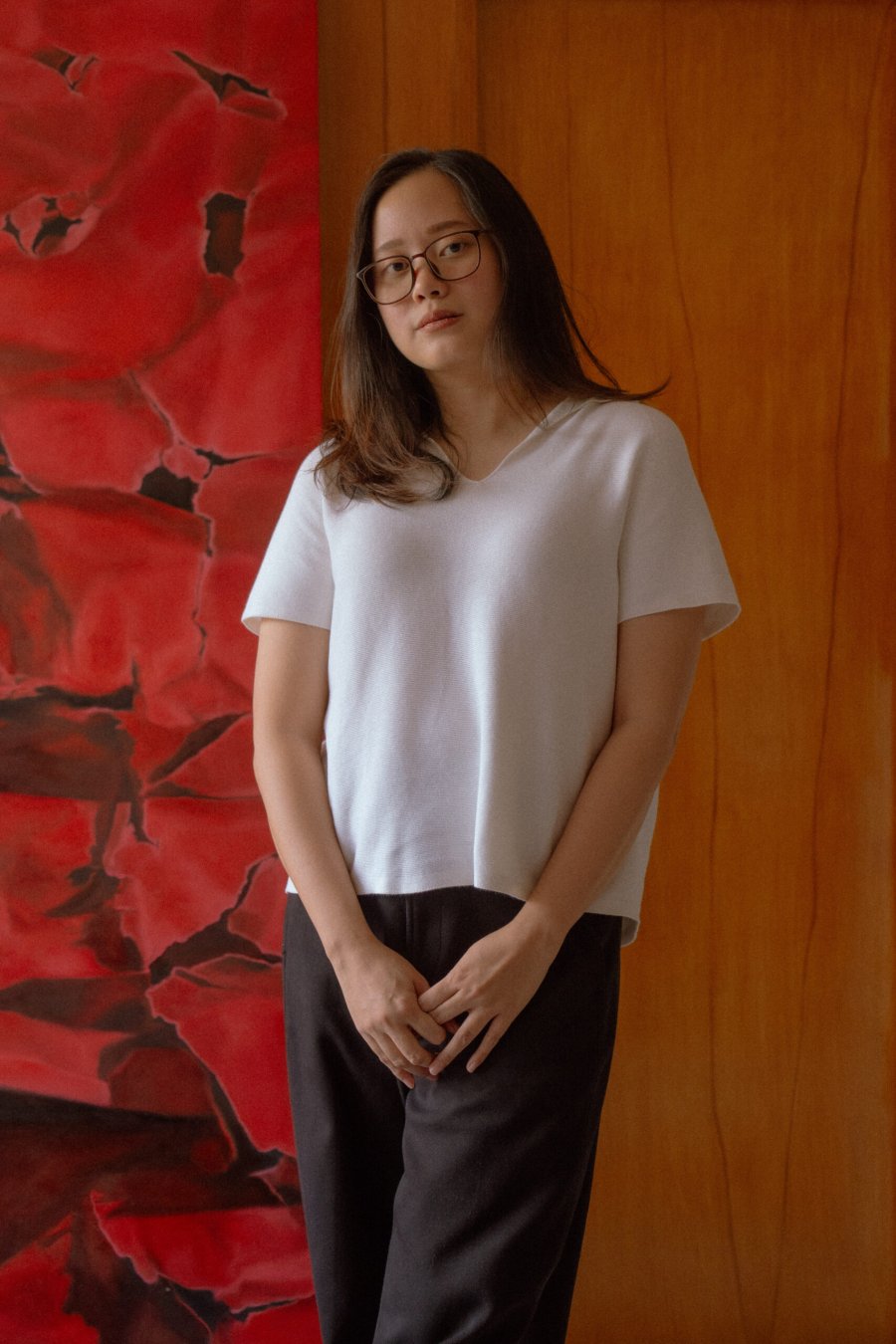
In her latest exhibition in Sydney, Australia, Filipina artist Ayka Go delves into this intimacy with extreme vulnerability and profound reflection. PHOTO: PHILIPPINE DAILY INQUIRER
“It was such a lonely health crisis kasi wala ka naman friends who openly speak about having reproductive issues, especially in my age bracket,” the artist shares. “But ever since sharing my piece of the story through this show, I’ve had several women come up to me and share their reproductive struggles. Parang naging yakap tong show na ito.”
The exhibition titled “tending the garden” opened on Nov. 15, at Ames Yavuz Gallery in Sydney, Australia. Featuring nine large-scale works alongside smaller experimental pieces, the show reveals a deeply personal narrative. The laborious large-scale paintings, ranging from 3 x 4 ft. to 7 x 5 ft., evoke both fragility and strength, offering a bittersweet exploration of loss and the artist’s process of resilience.
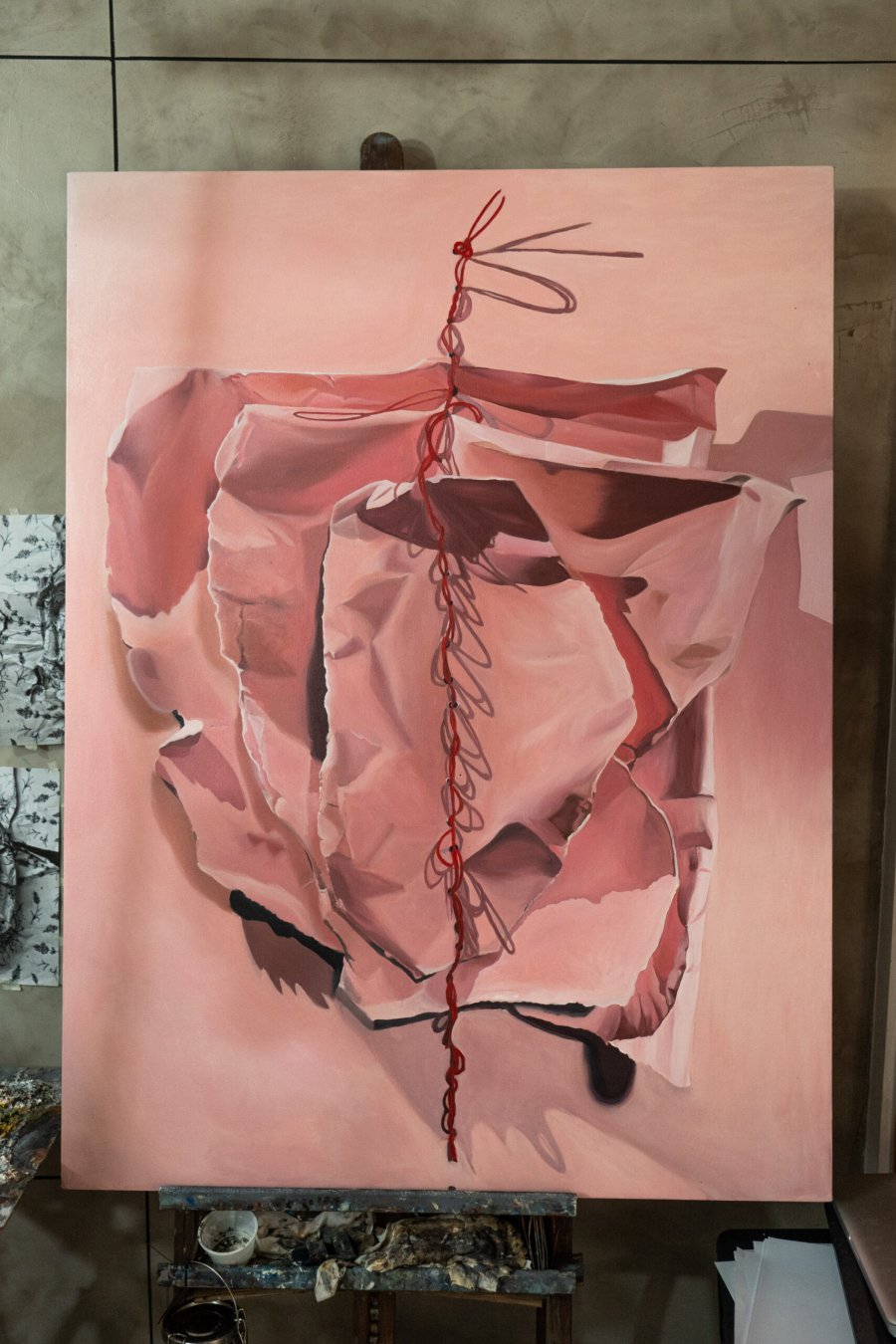
Go presents paintings of paper collages symbolizing vaginas stitched together as an expression of her recent discovery that she is post-menopausal. PHOTO: PHILIPPINE DAILY INQUIRER
The struggle through health transitions
During the pandemic, Go began experiencing significant health changes: weight fluctuations, extreme exhaustion, irregular menstruation, and persistent pain. She shares that not even a paracetamol could take away the head and body pain. At a time when it was difficult to go to the hospital for a checkup, an eventual medical test revealed she had a hypothyroid condition and pre-diabetic markers. This year, an even more extensive hormonal test delivered a shocking revelation: At 31, she is post-menopausal.
“Honestly, I’m not surprised because my past doctor told me… but of course, I was still saddened to read that you’re ‘post-menopausal’— not even ‘pre-menopausal’ or ‘menopausal.’”
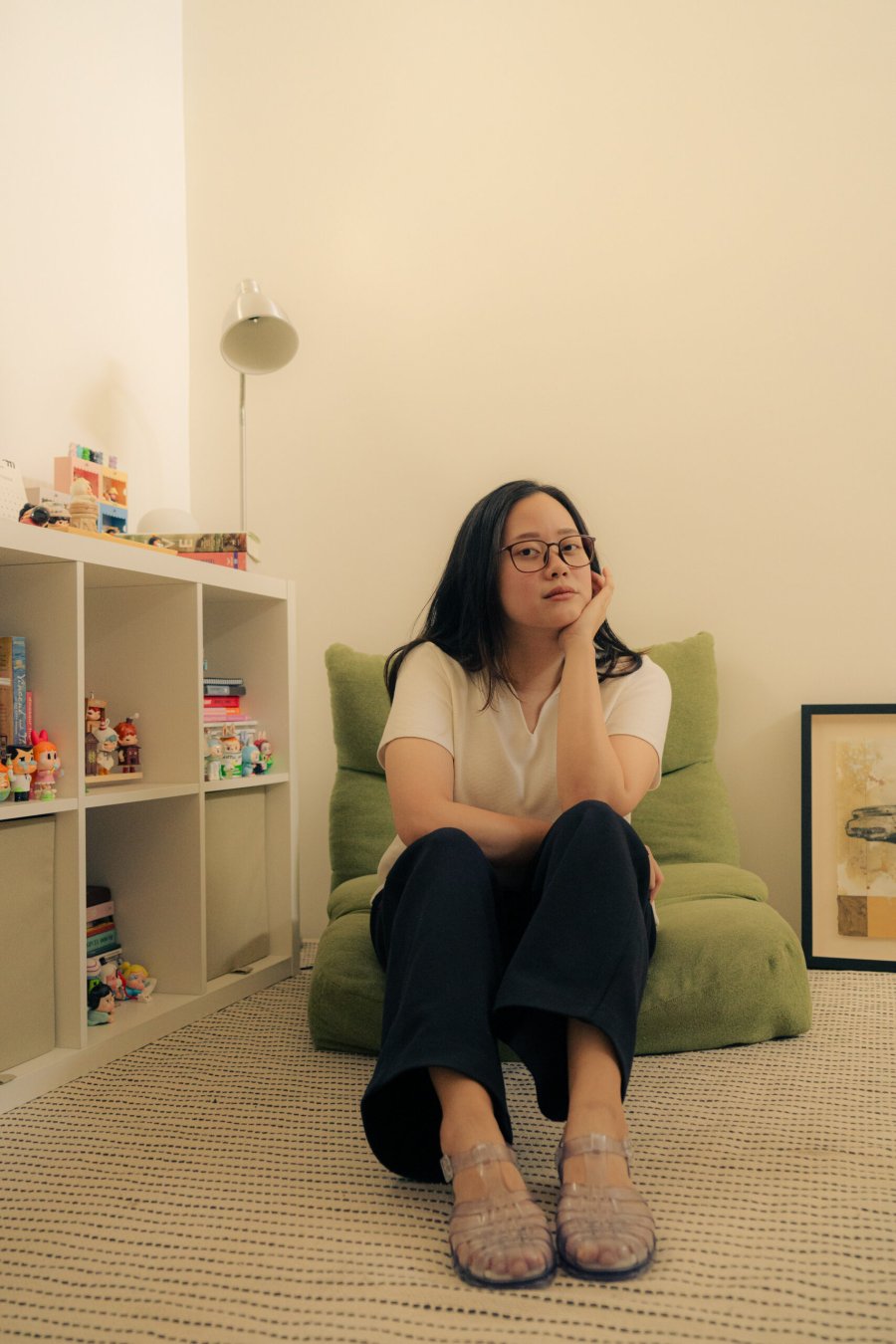
“This show is about being brave. And acceptance. Tumatapang ako kasi ’yun ’yung coping mechanism ko,” shares artist Ayka Go. PHOTO: PHILIPPINE DAILY INQUIRER
“When my first doctor mentioned the possibility of being infertile I was so stressed. All my life I didn’t want to have children nor magpakasal,” she continues. “But come my late 20s towards my 30s I was welcoming the idea. I thought, okay, womanhood isn’t a linear thing. I can do both and be as many versions of myself… I thought I could be a mother and an artist at the same time. But being told suddenly that you can’t… It was heartbreaking.”
For a long time, Go grieved in silence. Eventually, she opened up to her partner and friends, only to receive mixed reactions—some unwelcome, others laced with toxic positivity. “May mga friends din ako na nagsasabi na pilitin ko lang daw na magkaanak… Honestly nakaka-offend talaga. Iba-iba ’yung health situation at bodies nating babae.”
Alongside her medication came intense physical pain. She recalls her joints hurting so severely that she couldn’t walk or even sit to paint. Other side effects included an inability to cry, brain fog, and extreme forgetfulness.
“Eventually, I got better,” she says. “But those are things no one prepares you for.”
READ: 12 standout works at Art Taipei 2024
Transforming pain into creation
After this difficult health revelation, Go began to create, which became a healing process in both a metaphorical and literal way.
The exhibition’s title, “tending the garden,” is a metaphor for her own self-care and personal growth. “Parang ’yung health ko, kailangan ko i-attend palagi, ’yung pag-fertilize, fruit, ’yung pag-water, in-a-associate ako sa mga halaman.”
Her artworks, which might first appear like rosettes or flowers, reveal intricate, life-sized vulva representations upon closer examination—a deliberate play on perception and reality.
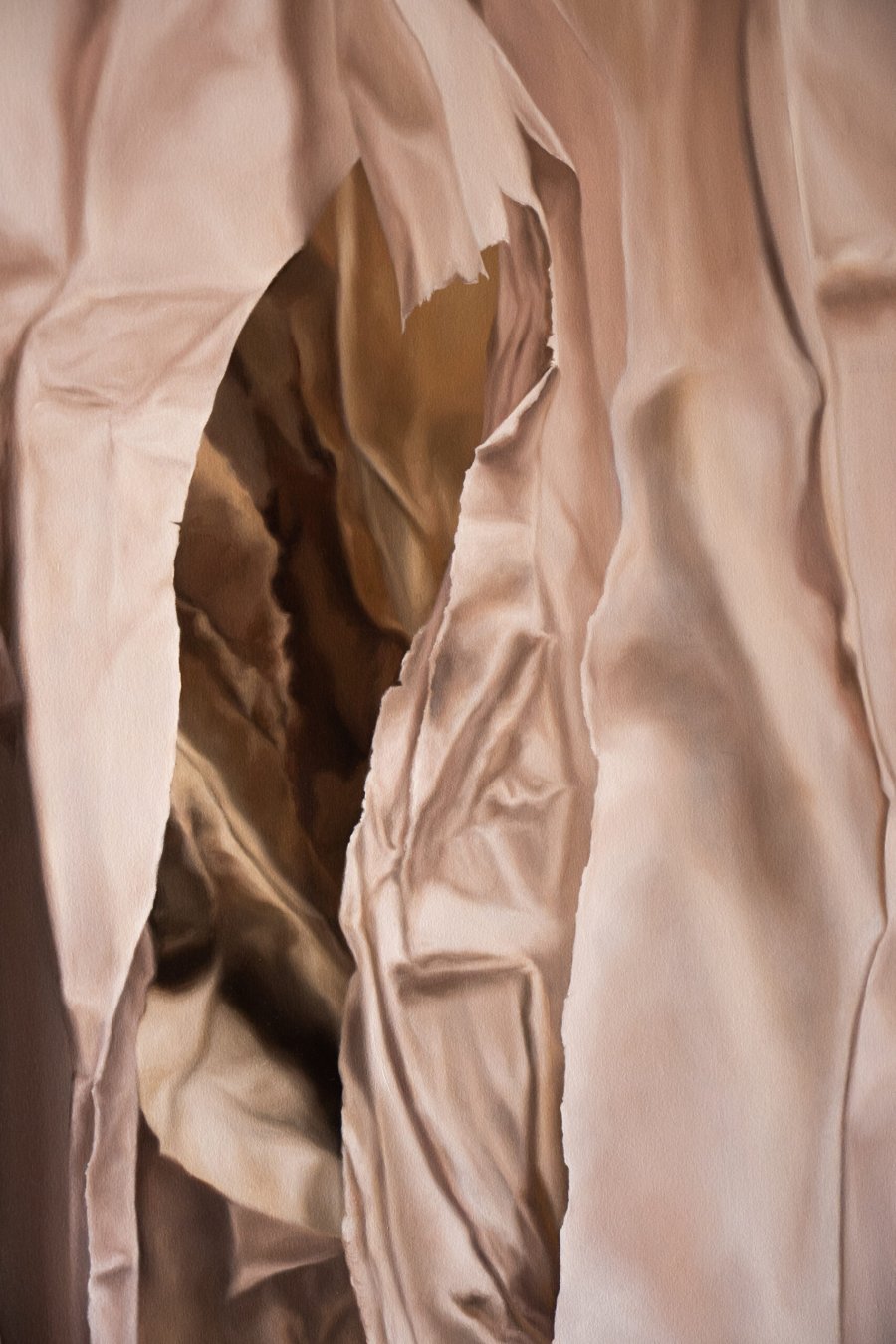
The painted vulvas take from her source material of collaged pieces of paper. PHOTO: PHILIPPINE DAILY INQUIRER
They are closed shut with intertwining symbolic stitches that are representative of Go’s gut-wrenching inability to bear children.
The first step to creating the representations of vulvas is found in her source material, paper collage, which she has long practiced in her career as an artist. She first makes these small, intricate collages onto translucent papers like crepe and Japanese paper, weaving them together with thread. She then transfers these onto large canvases. This use of paper has long been part of her process.
“It’s something that I couldn’t achieve with the usual paper I use, like construction or art paper,” she explains. Moving this reference from paper and stitched thread to formidable canvases, her work takes on multiple mediums and multidimensionality.
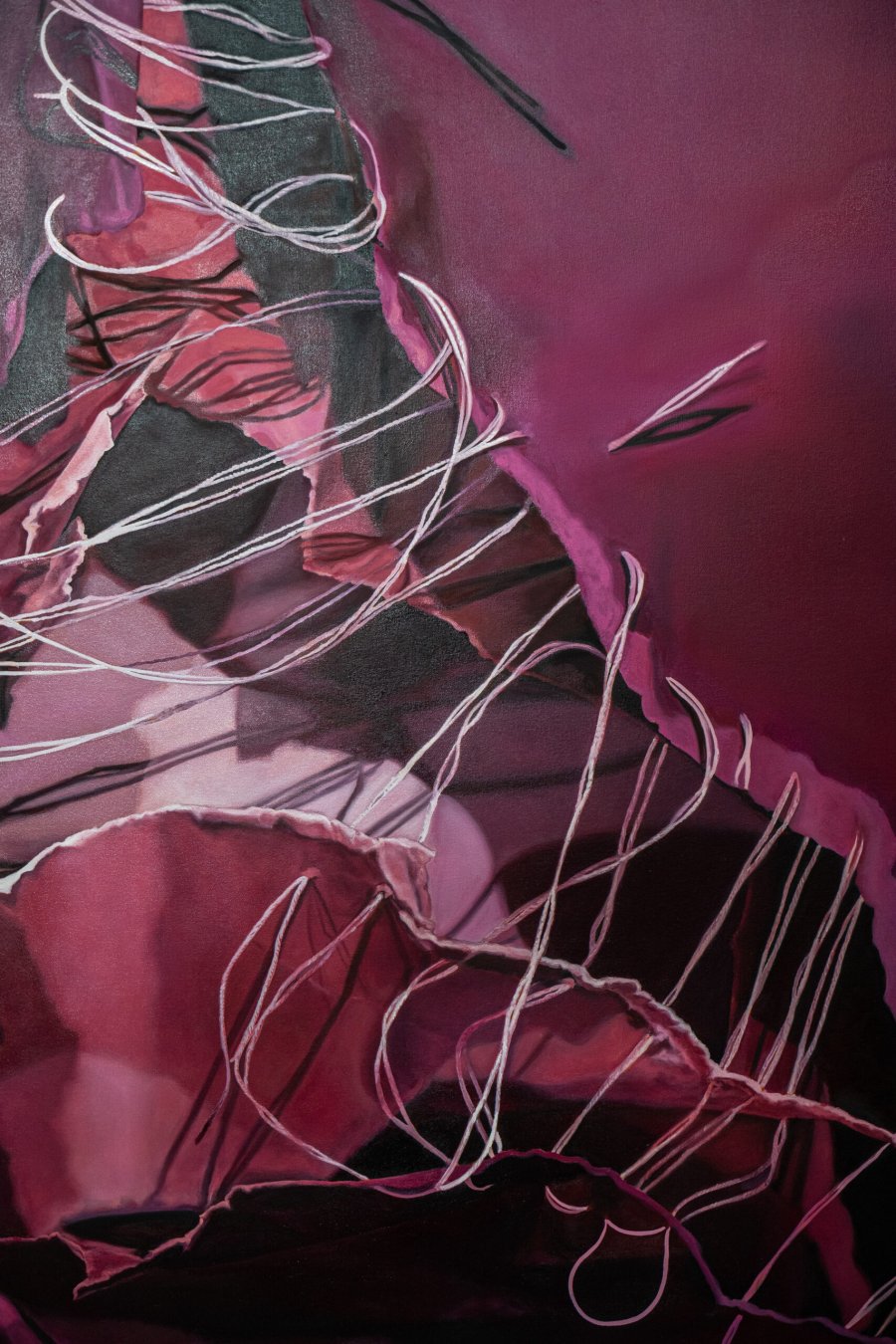
A detail shot one of the large-scale paintings shows the intricate painted stitches. PHOTO: PHILIPPINE DAILY INQUIRER
Color also plays a big role in Go’s work. She deliberately chose red for her paintings. “Ang intense kasi niya. It can mean power, struggle, pain, blood, vigor, love. ’Yung things na na-experience ko all throughout the process.”
There are also variations in pink and white, colors in-between which represent transition and growth. “My automatic response is may growth—a gradient from light to dark, parang pagdaanan ng araw. Like an apple or banana, ’pag fresh, after a few hours nagiging dull na siya.”
“Nakatulong talaga ’yung show sa akin, to breathe properly. The more intense I went sa details, sa trabaho… Nung time na ’yun, I was really very anxious and scared. When I was doing it day by day, I was processing all my emotions. Naging intense but also nagiging comfortable ako sa pagkakatao ko as a woman.”
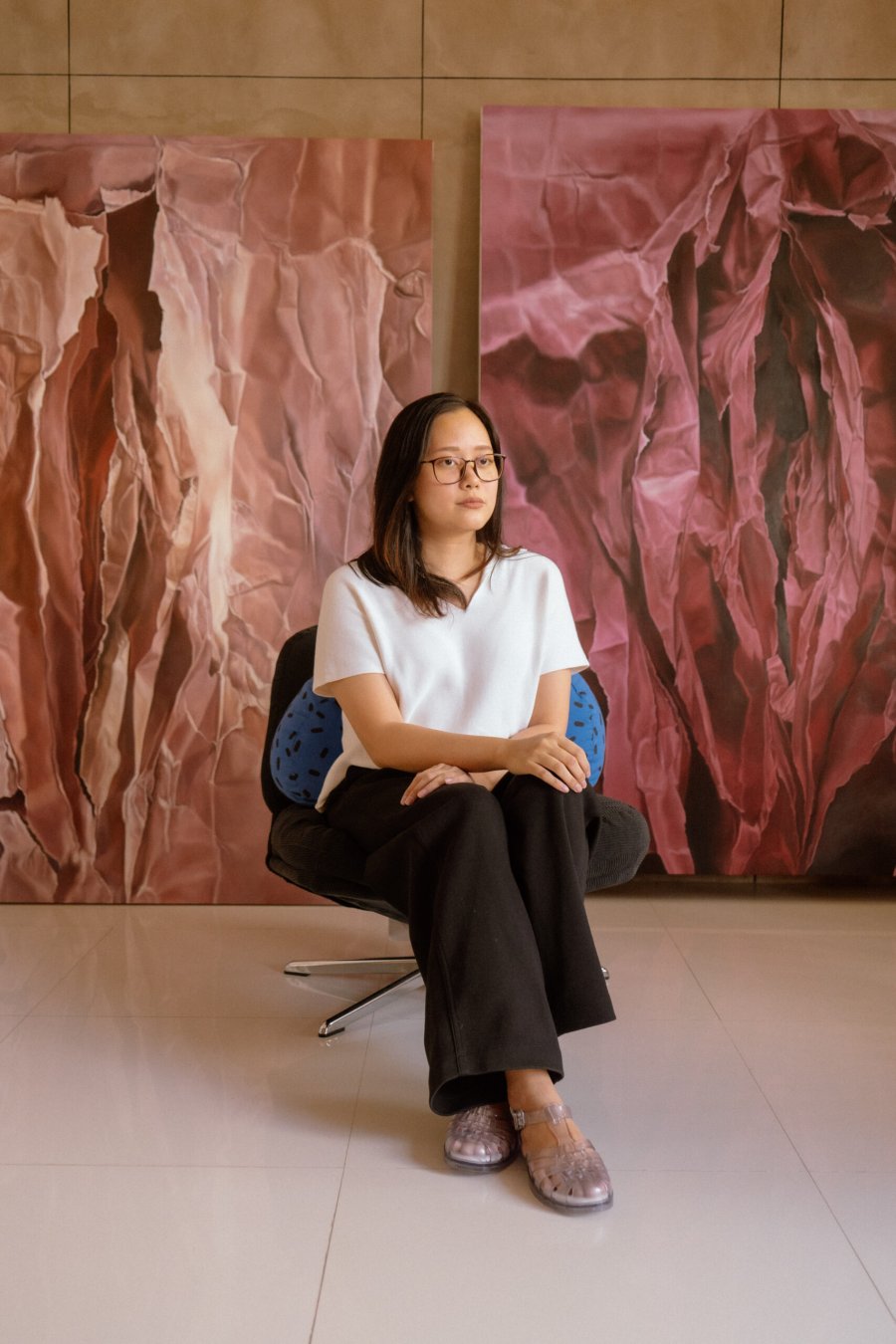
Artist Ayka Go amidst her life-sized work. PHOTO: PHILIPPINE DAILY INQUIRER
READ: Filipino artist Sid Natividad captivates viewers at Art Taipei 2024
Confronting societal expectations
Throughout her creative process, Go found solace and empowerment in podcasts. “What helped was listening to strong women speak about what they were going through. Listening to raw emotions, I realized it was also valid to feel all the feels and go through it as it is.”
Her comfort in discussing previously taboo subjects is evident in her enthusiastic declaration: “Now, comfortable ako sabihin na they’re vaginas!” she says with an exuberant laugh. I think ’yung process is very voyeuristic and it just so happens I’m going through this now. Even as a person, nagiging mas confident ako as a woman.”
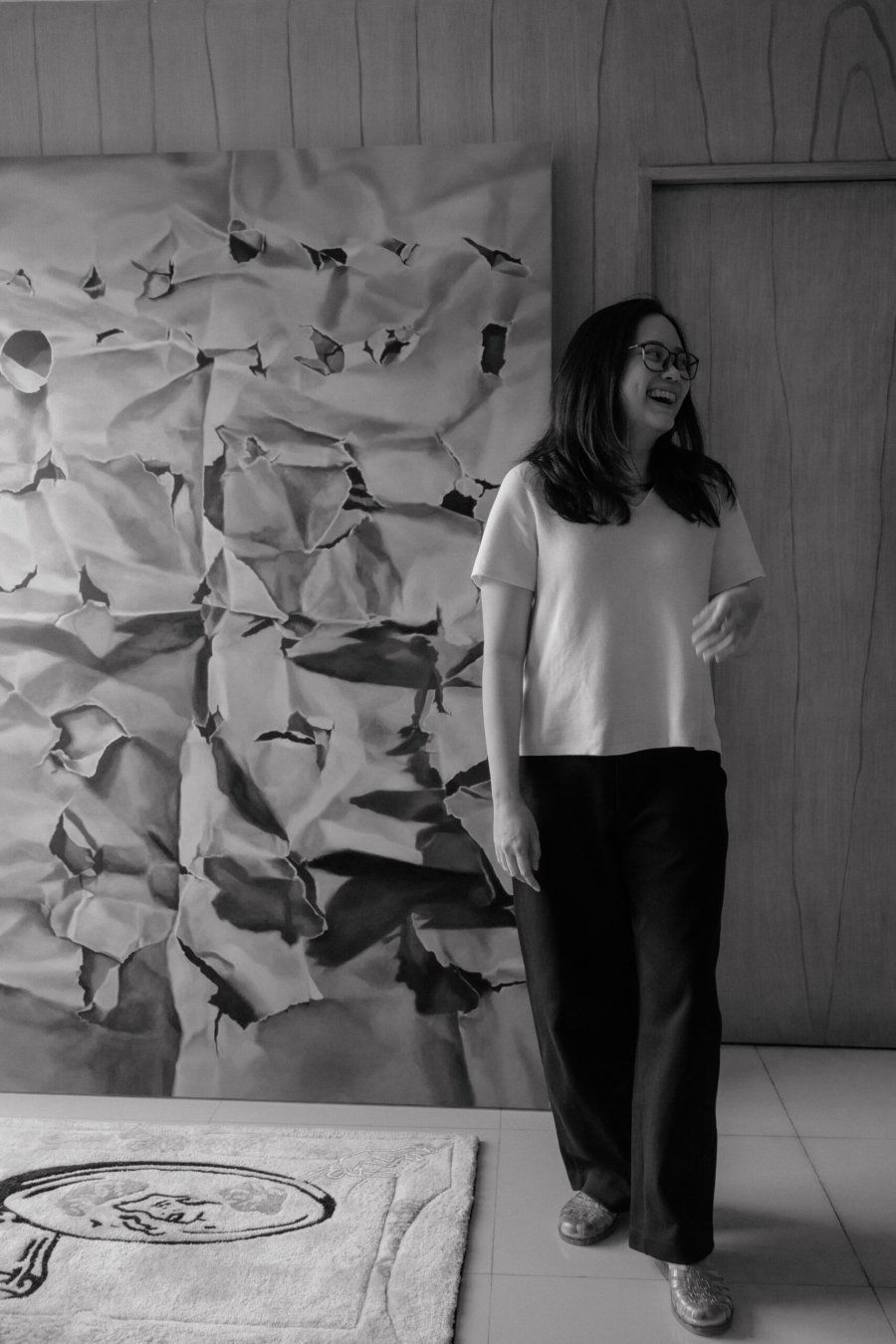
“This show is about being brave. And acceptance. Tumatapang ako kasi ’yun ’yung coping mechanism ko,” shares the artist. PHOTO: PHILIPPINE DAILY INQUIRER
Go’s exhibition challenges traditional narratives about womanhood and fertility. “It’s weird because 31 pa lang ako… All your life, sinasabi sa high school, don’t get pregnant. Masisira ’yung buhay mo. Don’t have sex. And now na I’m 31 and I can technically, bigla ’di pwede.”
“This show is about being brave. And acceptance. Tumatapang ako kasi ’yun ’yung coping mechanism ko.”
As Go prepares to slow down and nurture herself, the young artist plans to extend “tending the garden” beyond the canvas and further into her healing in daily life.


